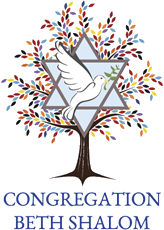Some people view the Torah as a set of ancient rules, most of which have no relevance to them today. Granted, there are some ethical and moral statements: don’t murder, honor parents, simple stuff like that. But that is as far as it goes. “Be a good person” is all the Torah is saying.
Or so we think.
Torah contains so much more than ‘just be good’, as evidenced by its very name. The word ‘Torah’ comes from the same root as the Hebrew word for a teacher (Morah). The essence of Torah is to instruct us. When we learn Torah, we learn patterns that we can instill into our lives.
Sometimes these teaching texts are found hidden in unexpected places. Take, for example, the Priestly Benediction:
May the Lord bless you and guard you.
May the Lord cause His face to shine upon you and be gracious to you.
May the Lord’s Spirit be with you and grant you peace.
This is not only how the Kohanim blessed the people, it is a paradigm for raising our children and letting them go when it is time.
The first statement from the Priestly Benediction talks about two different actions, blessing and guarding. The blessing we can most give our children is a nurturing environment while we guard them from the dangers around them. We place barriers around our children to protect them, whether it is child-proofing the house or giving them immunizations. We nurture and we protect.
The second statement can be seen as mirroring how parents look at their newborns. Parents look down at their child and just have to smile. A glow comes over the parents’ faces that can easily be seen as if it were the Divine shining His face upon us.
These first two statements are very different from the rest of the Priestly Benediction. They are one-way streets. We nurture, we guard and we view our children with adoration.
The third statement, however, is a two-way street.
We all are born with a spark of the Divine in us. As parents and teachers we strive to fan that Divine spark into a healthy flame. But as we fan that flame in our children, the Divine Spirit may take them on very different paths — paths we may not agree with, paths very different from our own.
How very difficult it can be to let our children go to live their lives as they see fit. We want to continue to nurture and to guard. Why wouldn’t we? We love them. However, nurturing and guarding can too easily become controlling.
The greatest gift we can give our children is not just letting them go on their own paths, for they will do that anyway. The greatest gift we can give our children is letting them go in peace. We will always love them, but now we need to love them as the adults they have become and not as the children they once were.
B’Shalom
Rabbi Stanley Halpern
